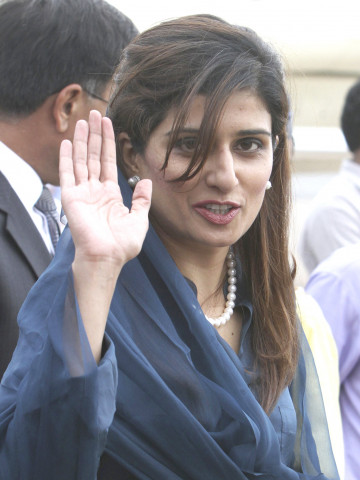
Speaking informally to a few journalists on board the prime minister’s aircraft back to Islamabad from the UK, Foreign Minister Khar delivered some interesting sound bites on Pakistan’s relations with the US and Nato. However, the important queries went without concrete answers.
Given that it was coming at the end of a five-day state visit to London, the foreign minister was particularly keen on highlighting the healthy state of ties with the UK – drawing a parallel with the current Pakistan-US relations.
The UK and the US have the same objectives in Afghanistan, she mused, yet only the latter that seems to have issues with Pakistan, while the former has no such problems. She has a point. After all, a joint statement issued after a meeting between British and Pakistani prime ministers did quote David Cameron as saying that Pakistan’s enemy is an enemy of the UK, and vice versa.
That’s a pretty strong statement by most standards – particularly in the context of a supposed ‘troublemaker state’.
Foreign Minister Khar was also keen on stressing that she personally believed that Nato supply routes through Pakistan, closed for some six months now, should be reopened.
On one hand, she says that it is in Pakistan’s interest to facilitate an international operation, while on the other she says that there are many friendly countries whose supplies are also blocked.
Nato and Isaf supplies, she said, should not be seen in the context of relations with the US. After all, added the foreign minister, Nato and Isaf are umbrella organisations for over 40 countries, including close friends such as Turkey, the UK, et al.
She had some interesting things to say about Pakistan’s role and its perceived importance globally. The young foreign minister insisted that the school of thought that said Pakistan should do whatever it takes to remain “relevant” internationally was flawed. “I’d rather be irrelevant than negatively relevant,” she said.
She hastened to add that the decision to close the supply routes was the correct one, recalling not only the Salala strikes, but also the US’ Abbottabad incursion – which she termed an effort to take sole credit for finding Osama bin Laden.
Regarding Pakistan’s supposed obligation to keep supply routes open, given that Afghanistan is an UN-mandated mission, she said that Pakistan was not “bound” as the UN resolution only called for “facilitation.” She also rubbished the chances of sanctions being slapped on Pakistan because of the blockade.
However, the foreign minister was not forthcoming on when exactly the supply routes would be reopened – and was hesitant to even give a timeframe.
When questioned on what the stumbling block was, the foreign minister said simply that negotiations are under way and that “goodwill” was needed. She negated reports that the US had now declined to apologise to Pakistan. Why the routes had not been reopened was a question that remained unanswered, despite several attempts to get a concrete answer, with the foreign minister saying, surprisingly, that she was not privy to silent backroom discussions on the matter reportedly under way in Islamabad.
Inevitably, this segued into a question regarding the Army’s role in foreign policy. The foreign minister had a unique – and obviously painfully prepared – answer for this: saying that the role of the army should not be overplayed, or, for that matter, undercut.
Interestingly, at no point did the foreign minister attempt to dispel notions put forward by journalists that Pak-US relations are at an extreme low.
On the latest controversy in Pakistan-US ties – whether or not Pakistan would be invited to the Chicago conference on Afghanistan – Khar’s reply was surprisingly straightforward. On being asked who would be representing Pakistan at the conference, she said Pakistan had to actually first be invited before deciding on who would attend.
The comment is somewhat surprising, given that just two days ago she whispered into the prime minister’s ear at a press conference that Nato had retracted a statement by its Secretary General which suggested that Pakistan will not be invited to the conference.
On the other hand, the foreign minister said that Pakistan has taken the high road recently on a number of issues and has acted responsibly, regardless of what may be said about it. She quoted the example of the aftermath of the assassination of former Afghanistan president Burhanuddin Rabbani. There were a lot of negative things said about Pakistan at that time, she said. It would have been easy to react, but Pakistan didn’t – and instead handled the matter diplomatically.
Published in The Express Tribune, May 14th, 2012.
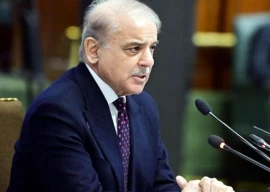
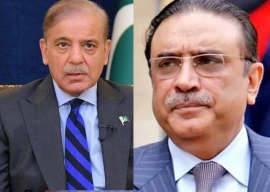

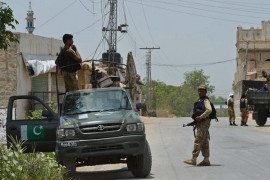

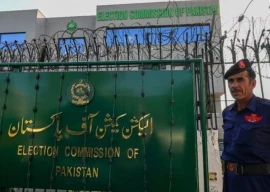
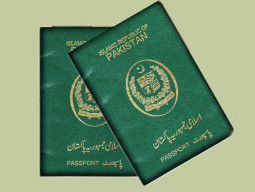
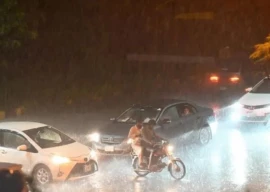
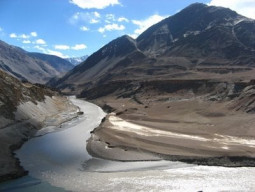

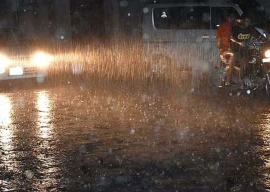







COMMENTS
Comments are moderated and generally will be posted if they are on-topic and not abusive.
For more information, please see our Comments FAQ